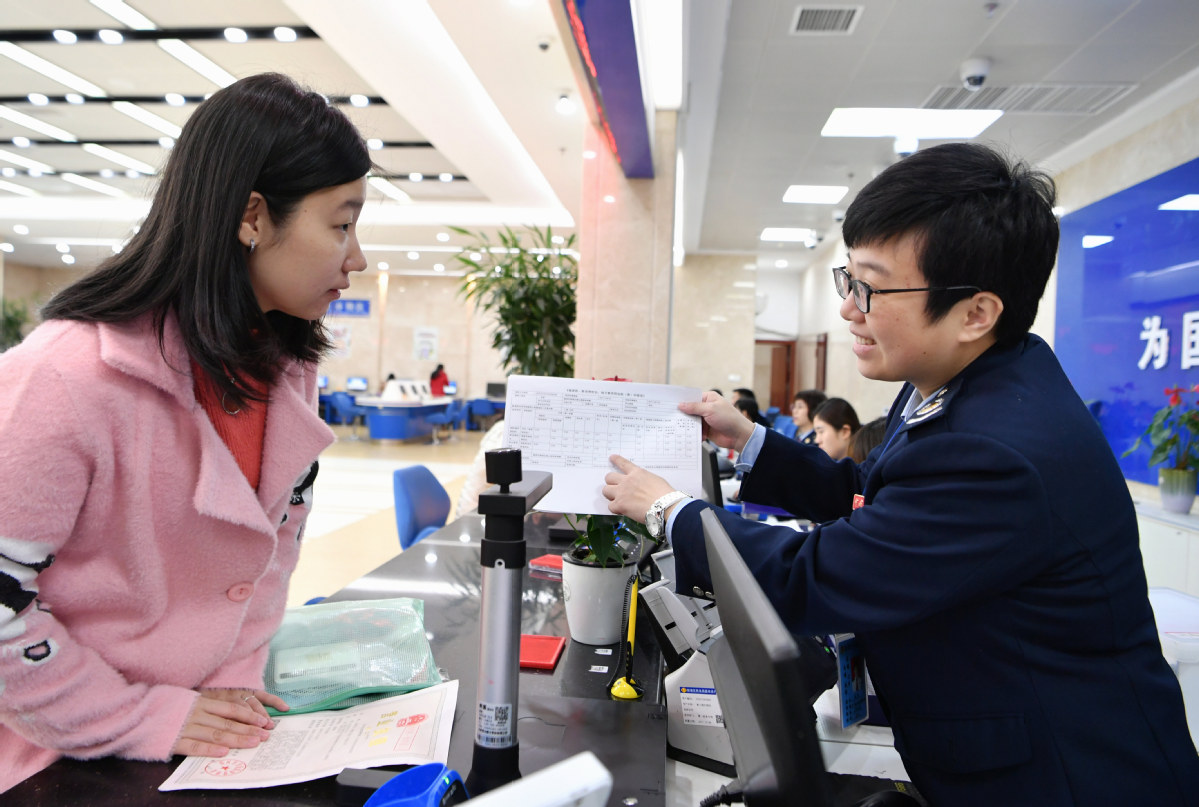Global tax reform to bring more benefits to developing countries


New agenda passed by G20 officials will tackle challenges brought by digital biz
The global tax reform agenda passed by G20 members will generally benefit China more than advanced economies as global tax revenues will be redistributed, and it will push multinational enterprises to review their overseas investment strategies, experts said.
When G20 finance ministers and central bank governors met for their fourth official meeting under the Italian G20 Presidency on Wednesday, they endorsed the final political agreement within a two-pillar solution to address the global tax challenges arising from the digitization of the economy.
They also passed a detailed tax reform implementation plan that involves reallocating profits of multinational enterprises and instituting an effective global minimum tax. The plan provided a timetable to swiftly develop model rules and multilateral instruments, indicating the new rules will come into effect globally in 2023.
Jeff Yuan, PwC Asia-Pacific transfer pricing services leader, said that according to estimates from the Organization for Economic Cooperation and Development, or OECD, the implementation of the first pillar under the framework for international tax reform on base erosion and profit shifting (BEPS), will help to redistribute more than $125 billion in profits per year to market jurisdictions.
So far, 136 of the 140 members participating in the BEPS framework have agreed to reform the international tax system, including Ireland, which previously opposed the reform plan.
The first pillar targets large multinational enterprise groups with global turnover above 20 billion euros ($23.14 billion) and profitability above 10 percent.
And new rules confirm that enterprises in the group need to transfer 25 percent of "residual profit"-the portion above 10 percent of profitability-to market jurisdictions. Previously, the proportion was identified as a range between 20 percent and 30 percent.
Developing countries, including China, will receive higher tax benefits than developed countries, said Yuan. That will affect about 100 multinational enterprise groups, of which about 8 percent are from China, while about 50 percent are from the United States, according to the publicly available data.
PwC China International Tax Service Leader Kevin Wang said that for the second pillar, it has been confirmed that the global minimum corporate income tax rate will be 15 percent. This rate, however, will have limited impact on most Chinese enterprises as the China standard corporate income tax rate is 25 percent.
However, the compliance cost of China-based multinational enterprises with global turnover above 750 million euros will be significantly increased.
Some Chinese companies, which enjoy the 15 percent corporate income tax rate because of the preferential policy, may have an actual tax rate of lower than 15 percent, so they will need to pay more taxes when the second pillar takes effect by 2023.
"If multinational enterprises have an effective tax rate lower than 15 percent in one or more particular jurisdictions, these enterprises may have to pay the top-up taxes up to 15 percent," Wang said.
The OECD indicated in a statement that the global minimum tax rate rule will increase global tax revenue by about $150 billion per year, and the competitive fiscal advantages of some regions with low taxes, or "tax havens", will be weakened.
In the past, these regions used to rely on ultralow tax rates to attract multinational enterprises to keep their profits and develop businesses locally.
"Although there are still some technical issues to be cleared, the two-pillar plan has been taken a further step forward," Wang said, adding that considering most countries have shown their supportive attitude toward the global tax reforms, major changes in the international tax system are inevitable.
As the two-pillar plan will be implemented as scheduled in only about one year, Chinese enterprises should get familiar with the newest updates on the latest international tax rules and review their existing overseas operational structure during this time window, PwC experts said.
Chinese enterprises also need to consider the possible impact of the two-pillar plan in advance, and comprehensively consider investment structures and costs, they added.




































